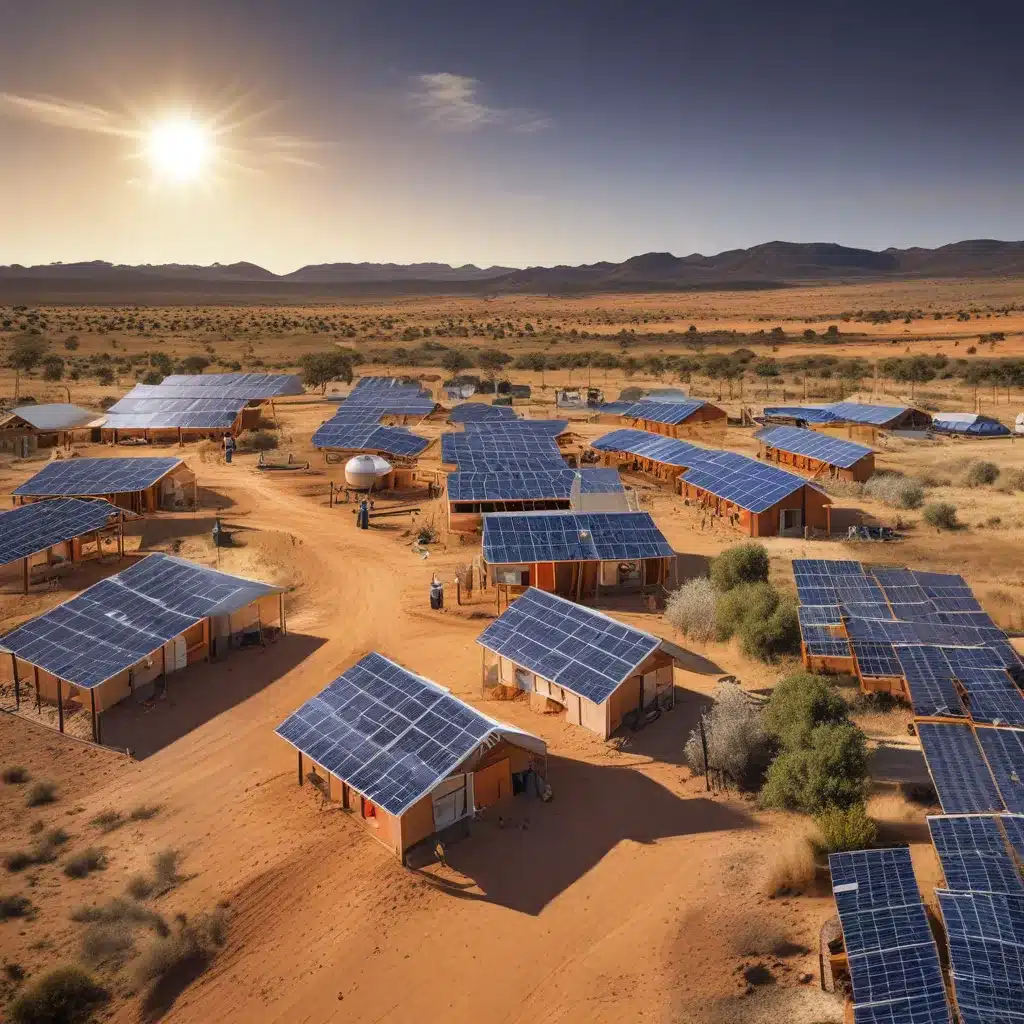
Solar Powering Remote Communities Off-the-Grid
In the heart of Bassa, a remote village in Nigeria, I found myself immersed in a solar-powered oasis, a stark contrast to the pervasive darkness that often shrouds off-grid communities across the continent. As I strolled through the dimly lit streets, the rhythmic hum of diesel generators gave way to the soft glow of solar-powered lights, and the lively chatter of the locals filled the air.
Discovering the Power of Productive Hubs
My journey to Bassa began with a tip from a fellow energy enthusiast about a community that had successfully transitioned from diesel to solar power. Intrigued, I set out to witness this transformation firsthand.
As I explored the village, I was struck by the vibrant productive hubs that had sprung up, each one a testament to the power of solar energy. Businesses like barbershops, power tool workshops, and even a bustling rice mill were all thriving, powered by high-capacity solar home systems from innovative off-grid energy providers like A2Ei and Creeds.
These productive hubs were the key to unlocking the full potential of solar power in Bassa. By targeting commercial users first, the energy providers were able to ensure a reliable base load of demand, making the transition to renewable energy both viable and sustainable.
Powering the Community, One Household at a Time
As I delved deeper into the community, I discovered that the solar-powered productive hubs were just the beginning. The energy providers had also implemented a clever “hub-and-spoke” model, leveraging the excess power from the commercial systems to bring low-cost energy access to neighboring residential households.
This decentralized approach to electrification was a game-changer. By sharing power across a network of interconnected mesh-grids, the community was able to enjoy the benefits of reliable, renewable energy, even in the most far-flung corners of the village.
Imagine the energy development of a community starting with productive hubs that replace diesel gensets, then expanding to neighboring households, and ultimately interconnecting the clusters, leading to a whole community thriving off reliable and renewable energy. This vision was unfolding right before my eyes in Bassa.
Embracing the Solar-Powered Lifestyle
As night fell, I was welcomed into the home of Idris, a local resident who had eagerly embraced the solar-powered lifestyle. To my surprise, the cozy abode was far from the “roughed-out” experience I had anticipated. Instead, I was greeted with the sounds of T-Pain and Wyclef Jean blasting through solar-powered speakers, LED lights casting a warm glow, and a gentle breeze from a solar-powered fan keeping us cool.
Sharing a meal of locally harvested rice and vegetable stew, I couldn’t help but feel a sense of community and contentment that I had rarely experienced in my urban life. The off-grid experience was not one of deprivation, but of empowerment and innovation.
As I drifted off to sleep, the familiar hum of a diesel generator was replaced by the soothing call to prayer, broadcast through the Okra mesh-grid system. In that moment, I realized that the future of rural electrification lies not in the centralized grid, but in the decentralized, solar-powered ecosystems that are transforming communities like Bassa.
The Path Forward: Solar-Powered Productive Hubs and Clusters
The next morning, I found myself immersed in the bustling local economy, with Zachary’s solar-powered diesel fuel shop serving as a prime example of the synergies that can arise when solar and fossil fuels coexist. As the use of solar increases, the demand for diesel fuel is decreasing, and Zachary is already planning to expand his business by investing in a solar-powered freezer to sell cold drinks.
This seamless integration of solar power into the fabric of the community’s livelihood is a testament to the adaptability and resilience of the people of Bassa. As the world grapples with the challenges of energy access and sustainability, communities like Bassa are leading the way, proving that solar power can be the key to unlocking economic growth and prosperity in remote regions.
Through the tireless efforts of companies like Solar A Systems Inc., Creeds, and A2Ei, the path forward for rural electrification is becoming increasingly clear. By focusing on productive hubs and implementing innovative business models like the hub-and-spoke approach, these organizations are paving the way for a future where off-grid communities can thrive, powered by the boundless energy of the sun.
As I prepare to leave Bassa, I can’t help but feel a sense of optimism and excitement for what the future holds. The dark nights of the past are slowly giving way to the bright, solar-powered days of the future, and I have no doubt that communities like this one will continue to lead the charge towards a more sustainable and equitable energy landscape.
So, let’s get the counter going again, from 760 million people without access to electricity, to zero. How fast can we make it happen? The answer lies in the resilience and ingenuity of communities like Bassa, who are proving that solar power can be the key to unlocking a brighter future for all.


